Every Episode of Doctor Who Series 5 Ranked From Worst to Best
- Oops!Something went wrong.Please try again later.
- Oops!Something went wrong.Please try again later.
- Oops!Something went wrong.Please try again later.
Series 5 was one of the biggest turning points in the show’s history. With Russel T Davies giving up the showrunner seat, this was the first time since 2005 that audiences would see such a dramatic shift in the presentation and storytelling style as Steve Moffat took over. Also, with David Tennant leaving the show, so did a large portion of the audience that grew up with him as the Doctor.
This series needed to prove that the show could still be just as great as it always was while pushing in a new direction – something I think it was wildly successful in doing. It didn’t take long for Matt Smith to become a beloved Doctor like those before him, and his companions – Karen Gillan’s Amy Pond and Arthur Darvill’s Rory Williams – are a huge part of why, but more of that as we press on.
Here is our ranking of every episode in Doctor Who Series 5.
Vampires of Venice
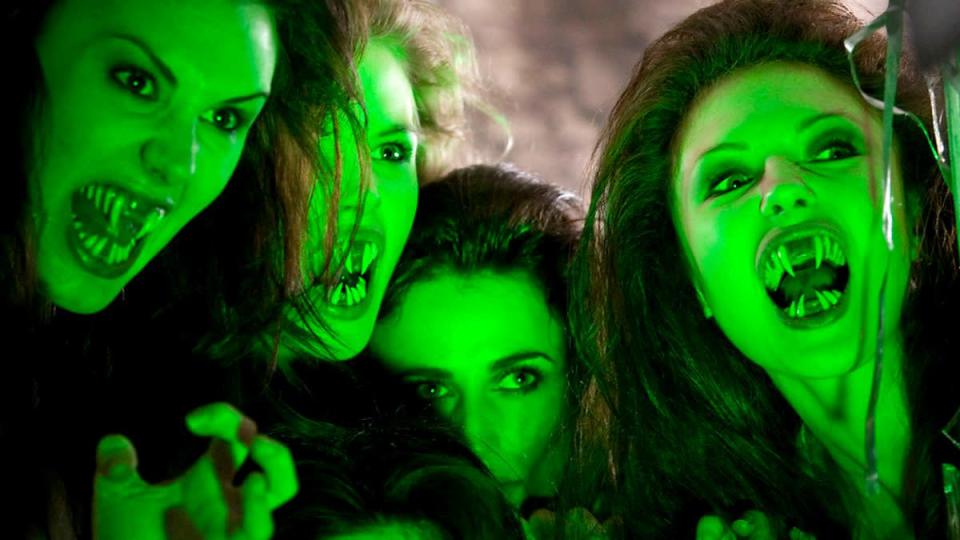
BBC
Sometimes you know an episode is going to underwhelm just from the title. Vampires of Venice joins such episodes as “Dinosaurs on a Spaceship” and “Arachnids in the UK”, as concepts that were just never going to work.
Whenever Doctor Who does traditional horror monsters, something really special has to be done to stop it falling flat, and that wasn’t the case here. Of course, the Vampires are actually aliens – as is the show’s way – but making them weird fish monsters was an incredibly strange choice, even if it does work the idea of Venice being a city on water.
All of these pieces come together to form and episode that just isn’t worth talking about. The writing isn’t terrible, but it doesn’t amaze either. I think it’s better if we just go back to forgetting this one exists.
Victory of the Daleks
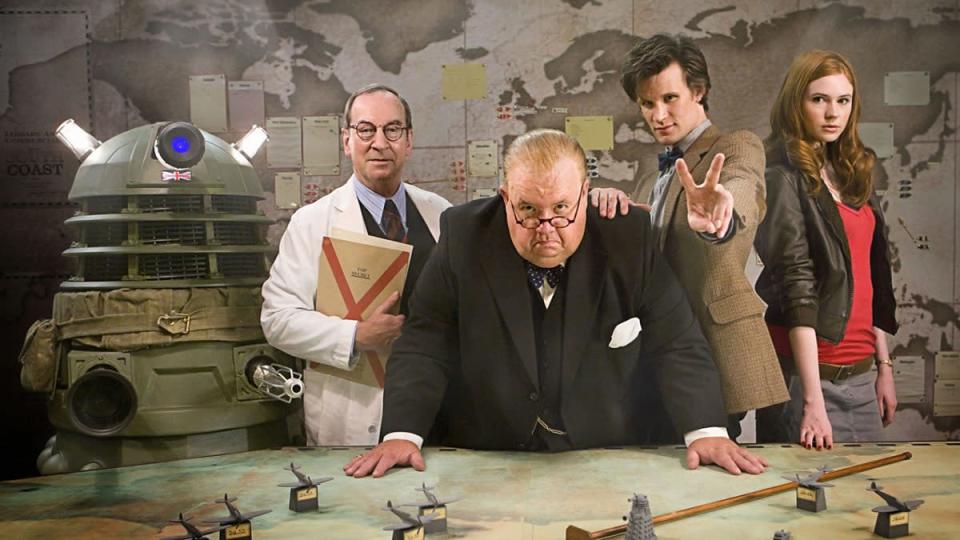
BBC
The first half of this is a good Dalek episode, then the second half drops all that potential directly into an incinerator that scatters the ashes over the rest of Moffat’s time as showrunner, preventing him from ever writing a truly great Dalek story.
The Dalek’s manipulation of the Doctor is genius. Watching the Doctor grow utterly furious as the Daleks simply refuse to acknowledge him makes for some brilliant tension as Smith flexes the anger this incarnation of the character can produce. Then, when they finally get what they want, it all goes down the drain.
Enough has been said about the terrible plastic-fantastic brightly colored Daleks – they suck – but more than that, the audiences’ resounding rejection of them just left the iconic villains without much to do during Moffat’s time as showrunner. They’re reduced to cameo appearances, and even all the way through to the end of 12’s run, every “Dalek episode” finds a way to be about something other than the Daleks.
I’ve now said the word Dalek too much and it doesn’t sound like a word anymore, so let’s move on.
The Hungry Earth & Cold Blood
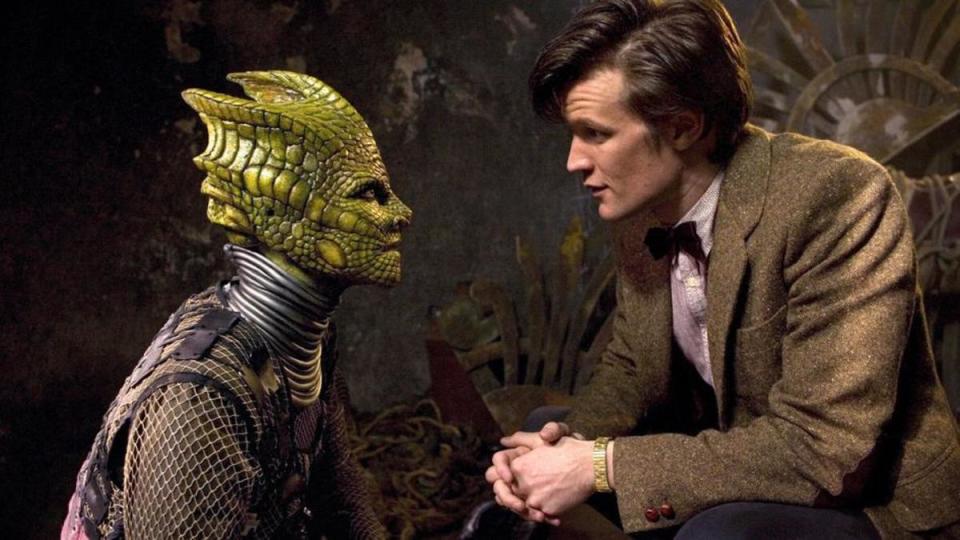
BBC
This episode has all the ingredients to be a great one. It has an interesting villain with unique motivations, it puts the Doctor in a peacemaker position, which is where he always works best, and it’s even in the late-series two-parter slot – a series position that had only produced top-tier episodes up until this point.
There’s just one problem though – it’s written by Chris Chibnall.
I don’t mean to always be having a go at Chibnall’s writing, but you look through this episode and you see all the hallmarks of what I hate about his time writing Doctor Who. The secondary cast are all gimmicky and annoying, with even the characters on the Doctor’s side driving me up the wall.
Rather than play out a thoroughly interesting scenario, it all gets blown up into one of Chibbers’ classic countdown-clock final acts that undercuts everything that came before it.
The Lodger
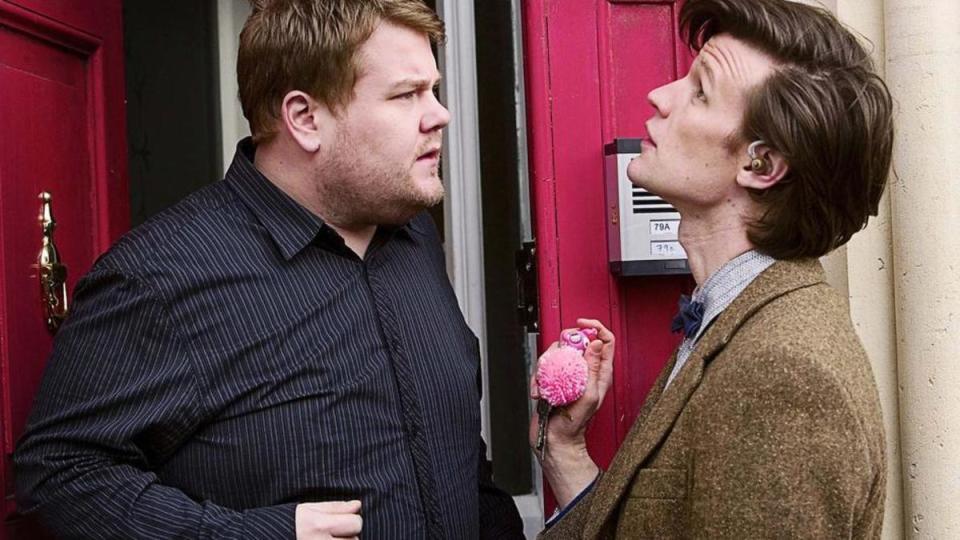
BBC
This episode has retroactively become a bit hard to watch given the path James Corden’s career would take in the years following this. However, if you can put how generally irritating he is to one side, there’s actually a fun episode buried in here.
Corden works well in the role of just some guy whose life happens to coincide with the Doctor, especially as the Time Lord is forced into a more slow-paced domestic life for a little while. It’s a bit silly, but I get a kick out of the Doctor charming everyone in Craig’s life while he’s constantly stressed out about being forced to confront the rut he’s settled into.
The ending is especially interesting though, and it leaves things on a bit of an unsatisfying note. Still, Craig and Sophie were memorable characters, and strong enough to deserve a return in the following season.
The Beast Below
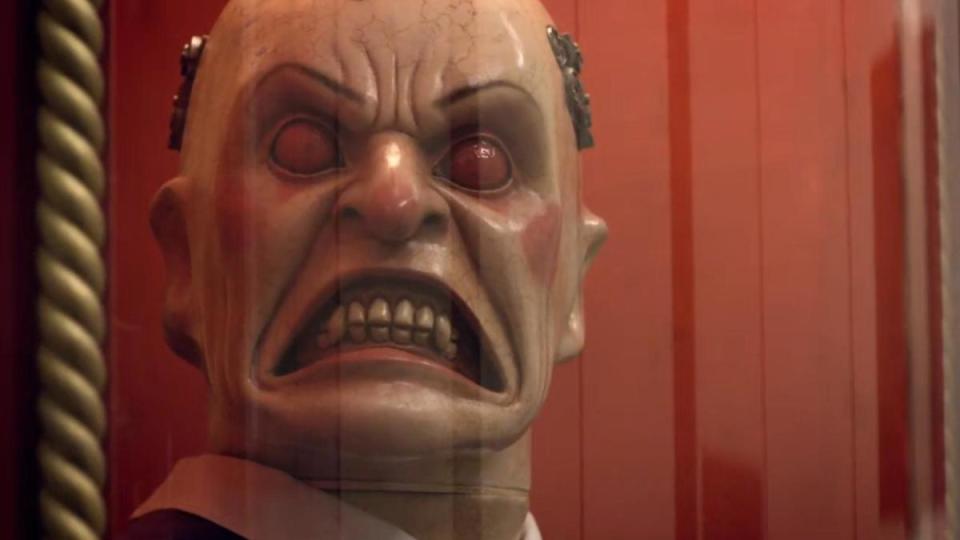
BBC
Where the series opener (which we’ll get to) has to spend a lot of time establishing what this new Doctor and companion are all about, this second episode gives us a proper taste of what it’s like to travel the universe with these two.
The strange society we find ourselves in works as something that’s familiar, yet still extremely alien to us, and it helps put us in the Doctor’s shoes when he gets so furious about what’s been allowed to happen. It was a great spotlight for Amy too, as while she makes a very human mistake, it’s also that humanity that allows her to see what the Doctor couldn’t and save the day.
It’s not the most exciting episode, but it’s a great examination of the relationship between these two characters who are still new to each other, cementing them as a great duo for the adventures to come.
Amy's Choice
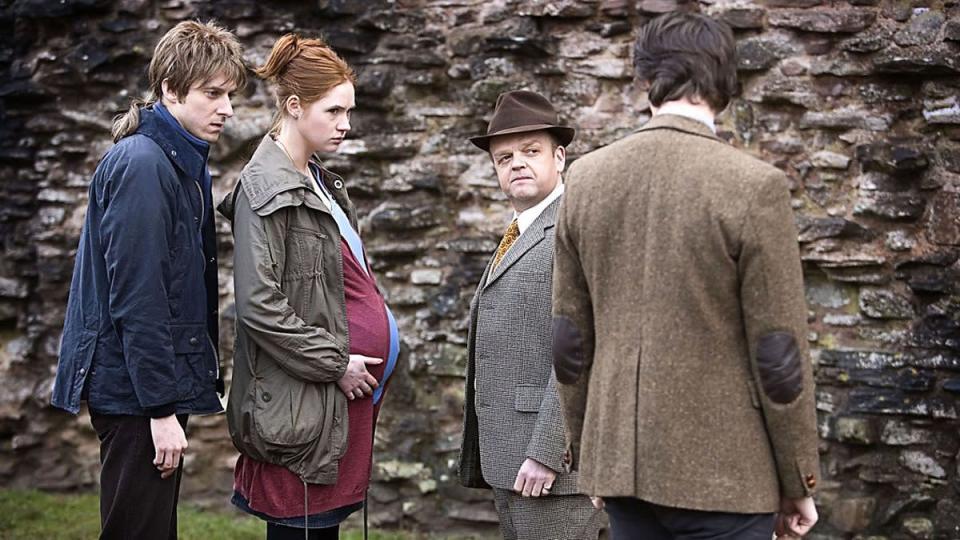
BBC
Of course, Amy herself wouldn’t be such a beloved character if it wasn’t for her other half, Rory. Once he started traveling in the TARDIS things really started cooking, as we used the early adventures with this trio to really drill into what makes Amy tick.
RTD’s era of the show had so much Doctor/companion romance, and Moffat created this dynamic to play with those expectations, before eventually subverting them entirely later in his run. This episode is the best deep dive into it, as while Amy lives for the thrill and adventure that comes with the Doctor and the TARDIS, she still truly loves Rory and would give it all up for him if she had to.
This episode is what makes everything that happens between them later – in this series and future ones – believable, and there’s nothing else in the show quite like it.
The Pandorica Opens & The Big Bang
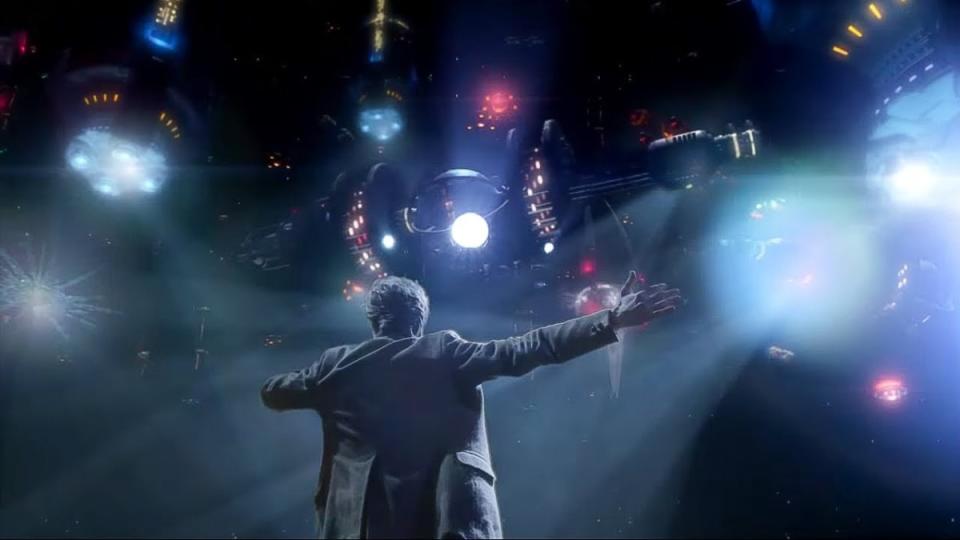
BBC
While there are finale stories I like better than this, I think this two-parter is one of the better stories to show a new fan. It has a bit of everything that makes Doctor Who so much fun. The first part is a slow and tense mystery that incorporates some juicy character drama to bolster the entire thing, ending in one of the best twists and cliffhangers the show has ever produced.
Then The Big Bang is a great run-around adventure featuring some of Moffat’s best timey-wimey plotting – interweaving characters from different points in the episode’s timeline to keep us guessing as to what’s really going on. Plus, I think it’s the story that best understands the interplay between the quartet of the Doctor, Amy, Rory, and River that we’d see several times in the series to come.
Vincent and the Doctor
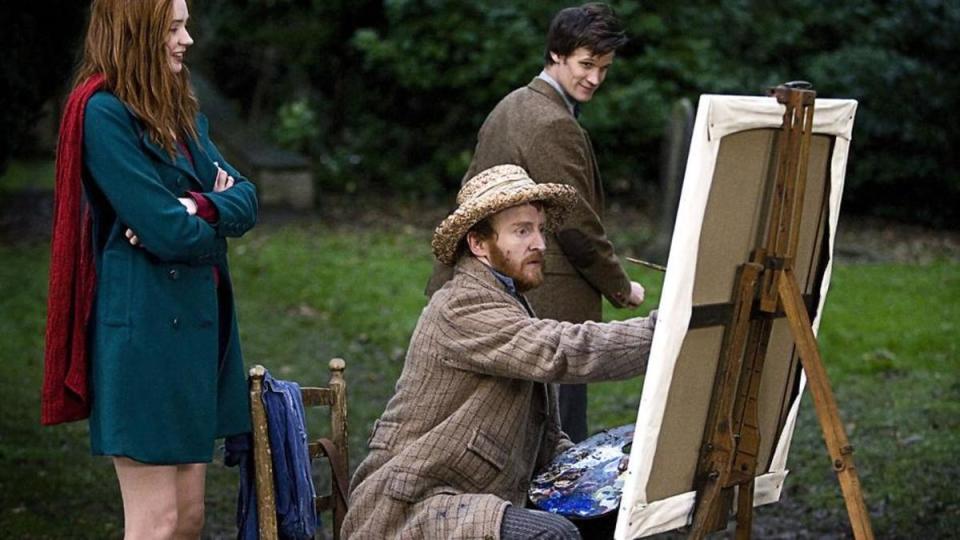
BBC
It may be tempting to call this episode a one-scene wonder, given that the ending is what always stands out to people, but it’s important to remember that the 40 minutes preceding it are excellent as well. This is arguably the show’s best portrayal of a historical figure. We still played into the stereotypes of what he was like, but it plays with the usual tropes to tell Vincent Van Gogh’s story.
Where these episodes usually hero-worship the figure in question, we see how Vincent was not appreciated in his time, and all Amy and the Doctor’s attempts to hero-worship him just feel a bit weird, even backfiring on them once or twice. Even the monster – an invisible creature only Van Gogh can see – is an integral part of the man’s perceived madness, twisting the romantic image of the stereotypical tortured artist.
Then, of course, there is that final scene which is absolute perfection. After seeing him put down by himself and those around him all episode, it is tearjerking to watch the man himself see how his work is perceived in the future. It’s perhaps the ultimate moment of hero-worship in any episode of this type, but it’s thoroughly earned by everything that came before.
Plus, it wraps things up nicely with a comment about mental health. Knowing his work would one day be adored didn’t extend his life or inspire him to create more art, but that ray of light in the darkness the Doctor and Amy provided him was still meaningful.
Time of Angels & Flesh and Stone
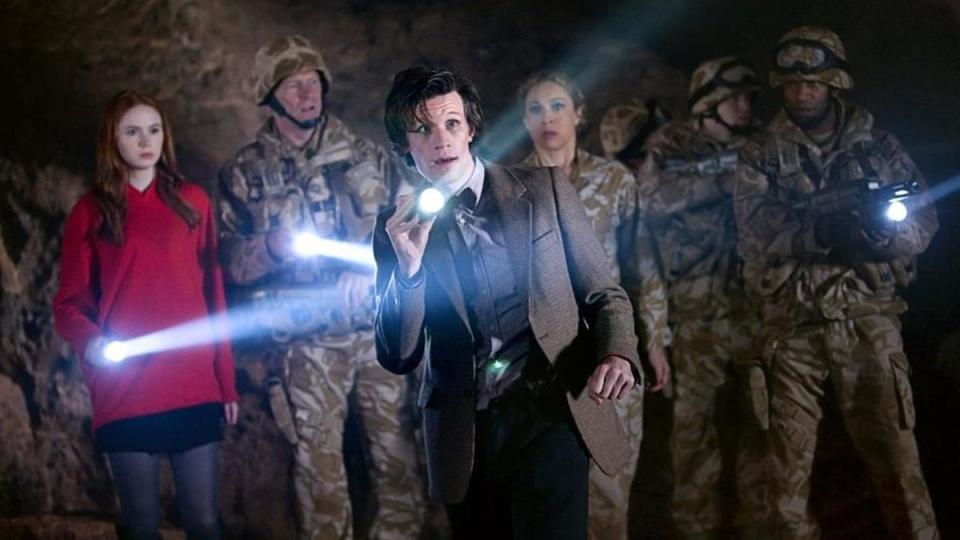
BBC
There is the false idea in some sections of the Doctor Who fandom that the Weeping Angels were never good again after Blink, but I wonder how many of them have sat down and watched this incredible adventure recently. It’s true that the Angels would eventually take a downturn in quality, but this two-parter kept the momentum from Blink going, adding to the lore with thrilling results.
Rather than going for another horror-focused episode, Time of Angels gives us that pace of a creeping mystery, but giving us a bit more action than in Blink with a nice big group of disposable soldiers to be picked off one by one, by an Angel that is hiding somewhere in a massive catacomb. It also ends in yet another brilliant twist.
The Doctor drops the factoid that the inhabitants of this planet had two heads so quickly that it fades from your mind just until the episode is ready to circle back to it. The realization that every single statue surrounding them only has one head, and is thus an Angel, dawns on you at the perfect moment, making for yet another top-tier cliffhanger.
Flesh and Stone lean even harder on the action, mixing in elements from the overall series arc as well to keep that mystery bubbling away, but still gives us heartstoppingly tense moments, like when Amy has to navigate a forest full of Angels completely sightless. If she opens her eyes the Angel inside of her will kill her, yet keeping her eyes closed is exactly what allows all the other Angels to attack her. It’s one of those “why didn’t I think of that” ideas with genius execution.
The Eleventh Hour
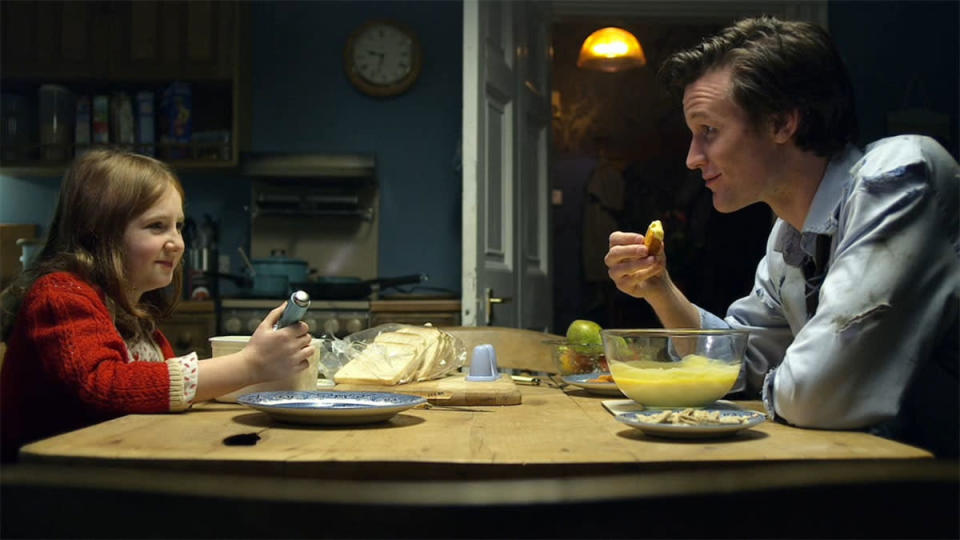
BBC
The Eleventh Hour was the first time since 2005 that Doctor Who would be starting from zero, with not only a new leading man in Matt Smith but a new showrunner in Steve Moffat. A portion of the audience who had grown up with Tennant had already decided to leave without giving the new regime a chance, while those who stayed were unsure what their favorite show would be like going forward.
Thankfully for everyone involved, The Eleventh Hour is one of the all-time great Doctor Who episodes, showcasing what’s brand new with the show in the best possible light, while still incorporating everything fans have loved up until that point.
Matt Smith bursts onto the scene with bouncy energy and irresistible charm, bringing a similar energy to Tennant, but in his own unique way. That difference is emphasized when things get more serious and this Doctor switches into mystery-solving mode, and just ten minutes in, we already understand who this Doctor is and what he’s all about.
Our new companion Amy Pond gets a perfect introduction as well, first as a child and then a grown woman. Having grown up “weird” due to her encounter with the Doctor – which everyone else in her life assumed was an imaginary friend – she is simultaneously delighted and betrayed when the Doctor shows up in her life again so many years later. What’s especially clever is how well the episode makes us feel the weight of that time despite it being barely a minute from our and the Doctor’s perspective.
Then it all crescendos in that iconic scene of Smith’s Doctor stepping through the holograms of his former self to simply declare “Hello, I’m the Doctor.” Paying homage to the show’s past while hooking everyone in for what’s the come.

